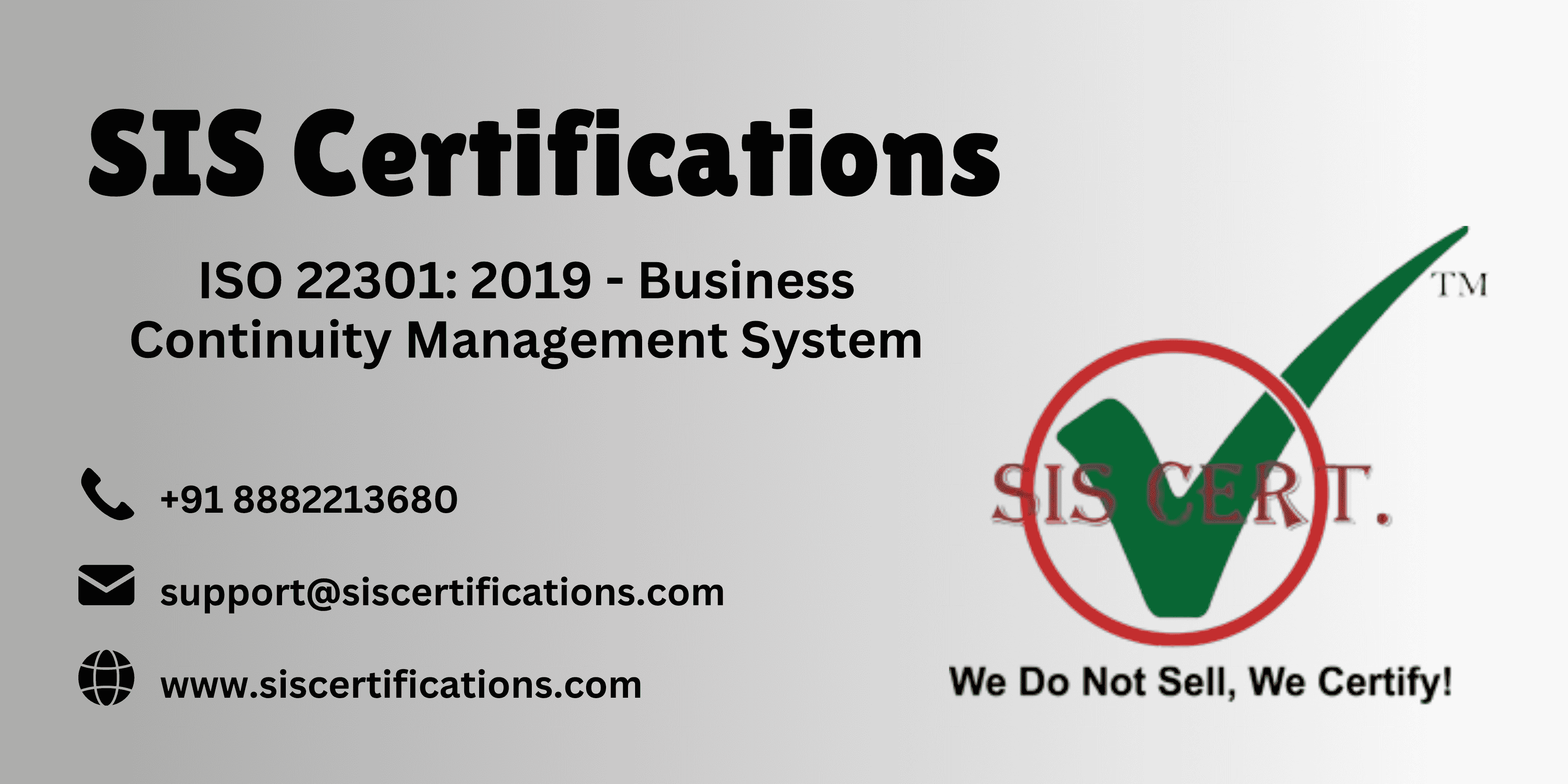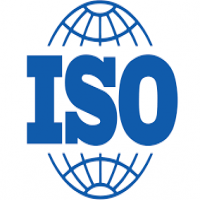Empowering Resilience: Your Roadmap to ISO 22301 Certification

Strong 8k brings an ultra-HD IPTV experience to your living room and your pocket.
Overview of ISO 22301 Certification
ISO 22301 Certification is the globally recognized standard for Business Continuity Management Systems (BCMS), designed to help organizations prepare for, respond to, and recover from disruptions. Whether facing natural disasters, data breaches, or operational challenges, ISO 22301 Certification ensures businesses can maintain critical functions and minimize downtime. This certification is applicable to organizations across all sectors—healthcare, retail, or technology—and sizes, from small businesses to global corporations.
Developed by the International Organization for Standardization (ISO), ISO 22301 provides a structured framework to identify risks, implement safeguards, and ensure swift recovery. By achieving ISO 22301 Certification, organizations demonstrate their commitment to operational resilience, enhancing trust with clients, partners, and regulators. This certification strengthens market position and equips businesses to thrive in unpredictable environments.
What are the Principles of ISO 22301 Certification?
ISO 22301 Certification is built on core principles that guide organizations in developing an effective BCMS. These principles ensure readiness and adaptability during crises:
Risk-Based Planning: Identifying and mitigating threats through risk assessments to protect critical operations.
Leadership Commitment: Requiring senior management to drive the BCMS, aligning it with organizational objectives.
Stakeholder Engagement: Involving employees, suppliers, and partners to create a unified approach to continuity.
Continuous Improvement: Regularly updating the BCMS to address emerging risks and enhance performance.
Structured Response: Developing clear processes for incident management, recovery, and communication.
Performance Evaluation: Monitoring the BCMS through audits and testing to ensure compliance and effectiveness.
These principles form the foundation of the ISO 22301 Certification Requirements, fostering a proactive approach to resilience.
ISO 22301 Standard
The ISO 22301 Standard, officially ISO 22301:2019 – Security and resilience – Business continuity management systems – Requirements, outlines the criteria for an effective BCMS. It offers a flexible framework that organizations can adapt to their specific risks and operational needs.
Key components of the ISO 22301 Standard include:
Organizational Context: Assessing internal and external factors, including stakeholder and regulatory requirements, that influence the BCMS.
Leadership Support: Ensuring top management provides direction, policies, and resources for the BCMS.
Risk and Impact Analysis: Conducting risk assessments and business impact analyses to prioritize critical functions.
Resource Allocation: Providing training, communication, and infrastructure to support the BCMS.
Operational Plans: Developing strategies for incident response, recovery, and crisis communication.
Performance Monitoring: Using audits, exercises, and reviews to evaluate the BCMS’s effectiveness.
Improvement Actions: Addressing gaps and implementing enhancements based on findings and evolving risks.
Aligned with standards like ISO 9001 and ISO 27001, ISO 22301 supports integrated management systems. ISO 22301 Certification validates compliance with these requirements, reinforcing organizational resilience.
ISO 22301 Certification Process
The ISO 22301 Certification Process is a structured journey to establish and validate a BCMS. While timelines vary based on organizational complexity, the process typically includes:
Gap Analysis: Assessing current practices against ISO 22301 Certification Requirements to identify improvement areas.
BCMS Development: Creating or refining policies, risk assessments, and recovery plans to meet the standard.
Implementation: Deploying the BCMS across the organization, with training to ensure employee readiness.
Internal Audit: Conducting a review to assess compliance and address nonconformities.
Management Review: Evaluating the BCMS to ensure alignment with business goals.
Certification Audit:
Stage 1: Reviewing documentation to verify compliance with the standard.
Stage 2: Assessing the practical implementation of the BCMS.
Certification Issuance: Upon successful audits, the organization receives ISO 22301 Certification, valid for three years.
Surveillance Audits: Annual audits to maintain compliance.
Recertification: A comprehensive audit every three years to renew certification.
The ISO 22301 Certification Process builds a robust framework for managing disruptions.
ISO 22301 Certification Cost
The ISO 22301 Certification Cost varies based on factors like organizational size, complexity, and location. Key cost components include:
Consulting Services: Engaging experts for gap analysis or BCMS development may cost $5,000-$20,000, depending on scope.
Training Expenses: Educating staff on ISO 22301 Certification Requirements ranges from $1,000 to $5,000, based on participants and format.
Internal Resources: Staff time dedicated to BCMS implementation represents a significant expense.
Audit Fees: Certification audits (Stage 1 and Stage 2) typically cost $8,000-$22,000, varying by organization size and certification body.
Surveillance Audits: Annual audits cost about 20-30% of the initial audit fee.
Maintenance Costs: Ongoing expenses for audits, plan updates, and training to ensure compliance.
Small organizations may face ISO 22301 Certification Costs of $10,000-$30,000, while larger enterprises could spend $40,000 or more. Comparing certification body fees and leveraging internal expertise can optimize costs.
ISO 22301 Certification Requirements
The ISO 22301 Certification Requirements outline the essential elements for a compliant BCMS. These ensure organizations are prepared for disruptions. Key requirements include:
BCMS Scope: Defining the processes, locations, and functions covered by the BCMS.
Continuity Policy: Establishing a policy reflecting the organization’s commitment to resilience.
Risk and Impact Analysis: Identifying threats and assessing their impact on critical operations.
Continuity Objectives: Setting measurable goals to guide the BCMS.
Response Plans: Documenting strategies for incident response, recovery, and communication.
Employee Training: Ensuring staff are trained on their roles in the BCMS.
Testing Exercises: Validating the BCMS through regular simulations and tests.
Documentation Control: Maintaining records of policies, plans, and compliance evidence.
Audits and Reviews: Conducting internal audits and management reviews to monitor and enhance the BCMS.
Meeting these ISO 22301 Certification Requirements ensures organizations can manage crises effectively.
FAQs
Q1: What is ISO 22301 Certification?
A: ISO 22301 Certification is a standard for BCMS, enabling organizations to prepare for, respond to, and recover from disruptions to ensure continuity.
Q2: How long does the ISO 22301 Certification Process take?
A: It typically takes 6-15 months, depending on the organization’s size and preparedness.
Q3: What factors affect the ISO 22301 Certification Cost?
A: Costs depend on size, complexity, consulting needs, and audit fees, ranging from $10,000 to $40,000+.
Q4: What are the ISO 22301 Certification Requirements?
A: Requirements include defining the BCMS scope, conducting risk assessments, creating recovery plans, and performing regular testing.
Q5: How often are audits required for ISO 22301 Certification?
A: Annual surveillance audits are conducted, with recertification audits every three years.
Conclusion
ISO 22301 Certification is a critical step for organizations aiming to strengthen their business continuity and resilience. By adhering to the ISO 22301 Standard, businesses can proactively manage risks, protect essential operations, and build stakeholder confidence. The ISO 22301 Certification Process, while resource-intensive, delivers significant benefits, including operational stability and enhanced credibility. Understanding the ISO 22301 Certification Cost and ISO 22301 Certification Requirements is vital for effective planning. By investing in a robust BCMS, organizations can navigate disruptions with assurance, ensuring sustained success in an unpredictable world.
Also Read ISO 22000 Certification
Note: IndiBlogHub features both user-submitted and editorial content. We do not verify third-party contributions. Read our Disclaimer and Privacy Policyfor details.







